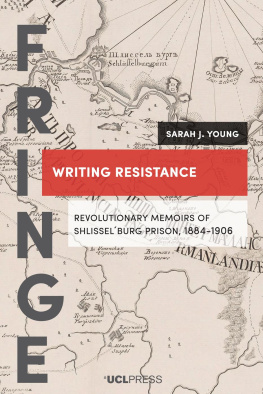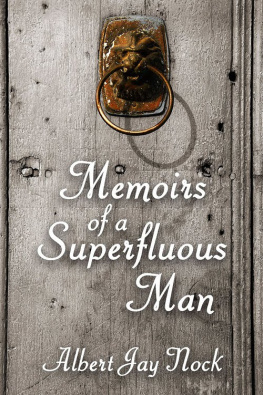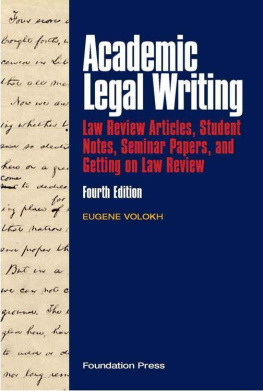Edited by Jon Alexander, O.P.
Copyright 2007 Jon Alexander, O.P. All rights reserved. Except for brief quotations in critical publications or reviews, no part of this book may be reproduced in any manner without prior written permission from the publisher. Write: Permissions, Wipf & Stock, W. th Ave., Eugene, OR 97401 .
Manufactured in the U.S.A.
Acknowledgements
W e wish to thank Sidone Smith, Julia Watson, and Dr. Dennis McCarthy, MD, for their advice in preparing this project; Matthew Dowling, History Department Chair, Providence College for allowing a seminar on American Veterans memoirs to be offered; Owen D. Kubik, Kubik Fine Books Ltd., and Ron Randall, Randall House, for information on dust jackets; John Lawless, Nicholas Ingham, O.P. and Paul Seaver, O.P. for help with Latin quotations; Thomas McCreesh, O.P. for help with Greek quotations; Robert V. Aquilina, Judith Bellafaire, and Paul St Laurent for assistance with military questions, Dr. Yosef Ali, MD, for explaining injuries described in the memoirs, Francine Mancini and Janice Schuster for help in locating books and web sites.
Thanks are due the following copyright owners who were kind enough to grant permission to quote material in this volume.
From Ethan Allen, Narrative of Colonel Ethan Allens Captivity , by Ethan Allen (Philadelphia: Robert Bell, 1779), Early American Imprints Series I, #16182, used with the permission of News Bank/ Readex Inc. and the American Antiquarian Society.
From John H Scott, Encarnacion Prisoners , by John H. Scott (Louisville: Prentice and Weissinger, 1848) courtesy of the Bancroft Library, Berkeley, California.
From Belle Boyd, Belle Boyd in Camp and Prison , by Belle Boyd (New York: Blelock & Company, 1865) reprinted with a New Forward by Drew Gilpin Faust and a New Introduction by Sharon Kennedy-Nolle (Baton Rouge: Louisiana State University Press, 1998) courtesy of the Louisiana State University Press.
From Solon Hyde, A Captive of War by Solon Hyde (New York: McClure, Phillips & Co., 1900) is in the public domain. The instructors copy of the original imprint was used.
From John H. King, Three Hundred Days in a Yankee Prison , by John H. King (Atlanta: Jas P. Davis, 1904) is in the public domain. The electronic copy at the Library of Congress web site was used.
From Amos E. Stearns, Narrative of Amos E. Stearns , by Amos E. Stearns (Worcester: Franklin P. Rice, Publisher, 1887) courtesy of LexusNexus Academic and Library Solutions, a division of Reed Elsevier Inc. (successor-in-interest to University Publications of America).
From Amos E. Stearns, The Civil War Diary of Amos E. Stearns, a Prisoner at Andersonville , edited by Leon Basile (East Brunswick, NJ: Associated University Presses, 1981). Copyright 1981 by Associated University Presses, Inc. Quoted by permission of the Publisher.
From Richmond P. Hobson, The Sinking of the Merrimac, by Richmond P. Hobson, The Century Magazine (December 1891-March 1899) courtesy of the Cornell University Library, Making of America Digital Collection.
From James Norman Hall, Flying With Chaucer , by James Norman Hall (Boston: Houghton Mifflin Company, 1930). Copyright 1930 by James Norman Hall. Quoted by permission of Nancy Hall Rutgers.
From William A. Berry with James Edwin Alexander, Prisoner of the Rising Sun , by William A. Berry and James Edwin Alexander (Norman: University of Oklahoma Press, 1993). Copyright 1993 by the University of Oklahoma Press, Norman, Publishing Division of the University. Quoted by permission of James Edwin Alexander.
From Albert P. Clark, 33 Months as a POW in Stalag Luft III: A World War II Airman Tells His Story , by Albert P. Clark (Golden, CO: Fulcrum Publishing, 2004). Copyright 2004 by Albert P. Clark. Quoted by permission of Fulcrum Publishing.
From Dorothy Still Danner, What a Way to Spend a War , by Dorothy Still Danner (Annapolis: Naval Institute Press, 1995). Copyright 1995 by Dorothy Still Danner. Quoted by permission of Naval Institute Press.
From William F. Dean, General Deans Story as told to William L. Worden by Major General William F. Dean (New York: The Viking Press, 1954). Copyright by William F. Dean, renewed 1982 by Mildred D. Dean. Used by permission of Viking Penguin, a division of Penguin Group (USA) Inc.
From Jeremiah A. Denton, Jr., with Ed Brandt, When Hell Was in Session: A Personal Story of Survival as a POW in North Vietnam (New York: Readers Digest Press, 1976). Copyright 1976 by Jeremiah A. Denton, Jr. and Edwin H. Brandt, Jr. Quoted by permission of Admiral Jeremiah A. Denton, Jr.
From John McCain with Mark Salter, Faith of My Fathers by John Mc Cain with Mark Salter (New York: Random House, Inc., 1999). Copyright 1999 by John McCain and Mark Salter. Quoted by permission of Random House, Inc.
From Richard W. Turk, Introduction, by Richard W. Turk to The Sinking of the Merrimac by Richmond P. Hobson (Annapolis: Naval Institute Press, 1987). Copyright 1987 to the introduction and notes by the U. S. Naval Institute. Quoted by permission Naval Institute Press.
Introduction
Jon Alexander, O.P.
How These Fourteen Papers Came to Be Written
A merican POW Memoirs from the Revolutionary War through the Vietnam War is a collection of papers from an undergraduate seminar I offered during the spring semester 2006 at Providence College. In the course of planning the seminar, I decided it would provide more coherence for the students if they were required to write their papers on POW accounts.
The list of POW memoirs I compiled from which students selected memoirs for their papers was not a representative collection of United States POW narratives in any sense.
I prepared a data inventory form for the students to use to collect information from the memoirs, and a basic outline for the first draft. These papers offer some thoughts about how some fourteen American authors described the experience of being a POW and some tentative opinions about how American soldiers have constructed a POW memoir, but these papers do not offer any information about persons or internments that rise above the anecdotal or impressionistic level.
Narrative Construction
The fourteen POW memoirs considered here basically correspond with Robert C. Doyles description of the narrative contour of American POW narratives in Voices from Captivity . Doyle notes seven characteristic event-scenarios in American POW accounts: (1) pre-capture autobiography, (2) capture, (3) death march/remove, (4) prison landscape, (5) resistance: survival or assimilation, (6) release and repatriation, (7) lament. With the exceptions of Doyles first event-scenario (pre-capture autobiography) and his last event-scenario (lament), the fourteen POW memoirs considered here contain the event-scenarios that Doyle describes.
Many memoirs have an element of collective authorship because many authors revise some of their recollections and polish their writing after sharing parts of their memoirs with family, friends, and editors before publication.
Only one of the memoirs considered here, James Norman Halls Flying with Chaucer , was written by a professional writer who made a living by writing.
Most of the authors of memoirs considered here were officers at the time of their internment.














